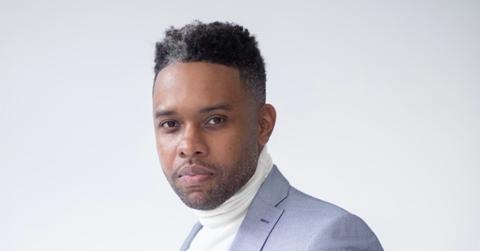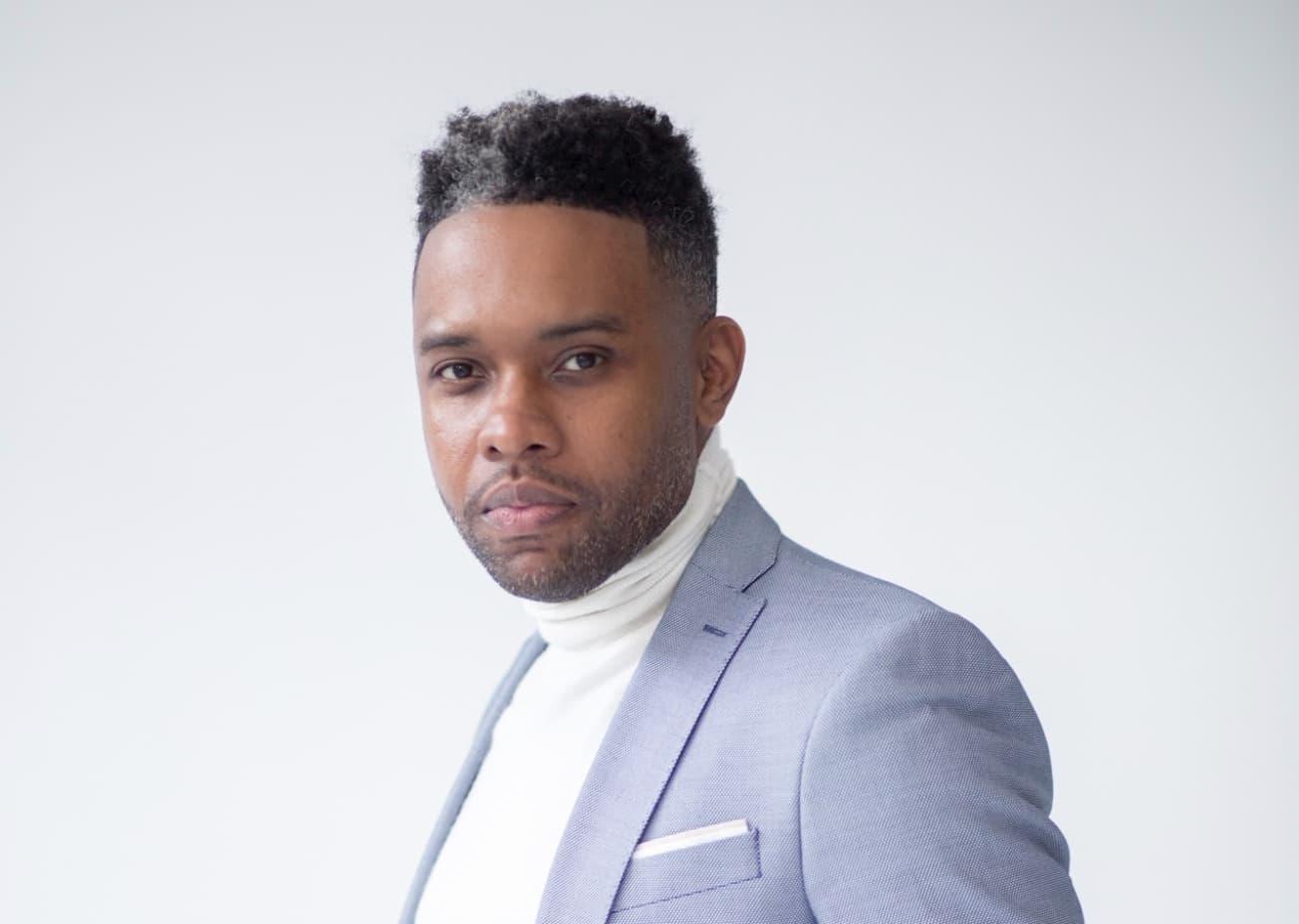
Q&A with 'Surthrival Mode' Author and Life Coach Pervis Taylor
Having been a life coach for 10 years, Pervis Taylor is enthused to share his knowledge with the world in his latest book Surthrival Mode.
By Jamie RolloJune 23 2020, Published 6:00 a.m. ET
Having been a life coach for 10 years, Pervis Taylor is enthused to share his knowledge with the world in his latest book Surthrival Mode. The book helps men accept, understand and navigate their emotions to truly thrive in all aspects of their life. Understanding that mental health and trauma can be a taboo topic among men, especially men of color, Pervis Taylor is hoping that through his work, he can show men the virtue of mental wellness and emotional intelligence. Outside of life coaching and writing his book, he works closely with the New York City Department of Education, the CUNY system and Center for Court Innovation. Bleu was lucky enough to chat with Taylor about his book, his career, and more. Read below:

Bleu: Starting off, can you talk about your latest book Surthrival Mode and the key topics discussed?
Pervis: “Surthrival Mode is a book that teaches men, and specifically men of color, how to process and navigate their emotions and mental health, ultimately taking them towards a place of hope. I call the book “Surthrival” – it’s a play on survival mode. I wanna take them from surviving within their emotions to thriving within their emotions with the book being the bridge… I have the four ‘A’s’ of Surthrival Mode. The first one is acknowledgement, the second one is acceptance, the third is articulation, and the fourth is alchemy – transforming the things that have hurt you into something that can serve you a greater purpose. I use my life narrative as a foundation and also the lives of men that I have coached.”
B: Can you discuss the four ‘A’s’ of Surthrival further?
Pervis: “The first step is acknowledging that something is not working properly or something is not going well. So you know, acknowledging is always the first stage towards a breakthrough. The second part is acceptance, which is a little more challenging because acceptance almost feels like consent, but it’s really a place of power. It’s saying that ‘I didn’t want this to happen but it happened anyway so I have to accept it. I have to be responsible for what is done to me,’ right? ‘I didn’t want it to happen but I’m responsible for what I do afterwards.’ And so that place of acceptance is very, very powerful. And the next is articulation, which is being able to identify and name the emotions, name how this has affected you, name how this trauma has altered life because my belief is that our healing is in our words. For men in particular, men don’t use that many words on a daily basis. On average, men speak like 10,000 words a day. Women on average speak 30,000 words a day. And your healing is always in your words. Articulation is important because it allows a space for men to expand their emotional lexicon and to use more words to contextualize and describe their experience…”
“Then the last part is alchemy, which is very powerful. Alchemy, at its core, is turning lead into gold. How do you turn all this stuff that we’ve been through, that I’ve been through in my life narrative. How did I turn it into the gold that I’m experiencing now? So, not only just being a Black man, but being a Black man who has endured sexual abuse, who has endured a father dying of heroin overdoe, who has endured homelessness – how did I turn all of that around to now, I’m powerful in the work that I do? So really it’s about understanding that we are powerful and we can still change and alter the narrative that we’ve been given or that we’re experiencing.”
B: What are some ways that men can be more in touch with their mental health and get rid of the stigma behind it?
Pervis: “I think it first begins with first believing that you have the right to be whole. I think for a lot of men, they don’t even know what wholeness looks like. And wholeness, the way I describe it is, it’s not a problem-free life or a perfect life, it is that you now know how to master the things that have mastered you. And so, I don’t think a lot of men have ever seen that modeled before – a man that is emotionally healthy and emotionally whole. I think it first begins with knowing you may be the first to be that person and empowering them by saying, ‘you could be something that you’ve never seen before.’ I’ve become something that I’ve never seen before. My father died of a heroin overdose, so obviously I didn’t see it in him. I had to imagine the person I wanted to be. The work that I do is that I teach men that you are empowered, you have the right to be whole. You have the right to thrive and feel your emotions… The first step to getting comfortable with your emotions is knowing you’re not alone. So many men all over the world are experiencing some of the same things you’re experiencing now and it’s okay… We have to create safe spaces for men to be able to process and express their emotions.”
B: What is your background? When did you begin to really advocate for mental health?
Pervis: “I have a marketing degree from the University of Miami, then I became a certified coach and then I got my masters in clinical psychology from Columbia University. And I’ve been doing this work as a life coach with a hybrid in mental health for 10 years.”
B: Can you talk about your work as a life coach?
Pervis: “You ask a million different life coaches, you’ll get a million different responses. For me, it’s really helping the client to thrive, right? It’s helping a client to get to that place where they are running at optimal levels… In sessions I’m all about encouraging my clients to build on a positive platform. I always use this tool called ‘What are five things you know to be true?’ And those five things have to be positive things about yourself because that’s the only way a dynamic life can be built; on a positive foundation. So every new client that I meet, my first question is ‘what are the five things you know to be true?’ What are the five things that make you who you are – that make you amazing? Because we wanna build that positive foundation, and then we build another layer, which is talking about your dreams and who you wanna be. Then we build another layer of you being actualized. So I ultimately take my clients to a place of actualization where they can become the best versions of themselves. Where they can be actualized not only as a human being, but also in the things they’re aspiring to be. So if it’s a career, if it’s marriage, if it’s friendship, even if it’s the relationship with themselves, that they become actualized in any capacity that they’re coming to me for.”
B: You’ve also worked closely with the New York City Dept. of Education, can you talk about some of the issues within the city’s education system and how you used your expertise to combat these problems?
Pervis: “I would say a lot of the issues is that there’s not a lot of access to mental health services for students, and particularly students of color… A lot of times when they’re creating therapeutic approaches in psychology, they don’t consider persons of color in those modalities. And so that’s the challenge. I think for a lot of students of color, in particular, there’s a cultural stigma for them with mental health. A lot of them don’t trust mental health professionals. There’s certain restrictions that licensed therapists have, so they can’t really talk about their personal narrative in sessions. They can’t really identify with the issues that they students are going through, even if they can. They are restricted with what they can share with students. And so me coming in there, being a life coach, even though I have the clinical psych degree, I have more freedom. I’m transparent with students out of the gate. I tell them everything I’ve experienced in my life. When you’re transparent as a leader, that creates an environment for sharing. So I’m able to make an impact with students where the counseling staff isn’t because of those restrictions. And a lot of times, the counseling staff doesn’t look like the students themselves. So, me being a Black man coming into the D.O.E school system, a lot of the students are persons of color. And they can identify with me… I try to bridge the gap between the school and getting the kids to go to therapy and getting them to see the benefits of therapy.”
B: Can you discuss the CUNY’s Black Male Initiative and your role within that?
Pervis: “I am co-founder of Alchemic Solutions and it’s a program that teaches young men of color how to develop emotional intelligence. We’ve partnered with the CUNY system via my program for two years at York College, at Laguardia Community College, at BMCC, and Brooklyn College for two years and it’s been hugely successful. There’s been a rise in men, young men, seeking counseling services, which is great. Grades have improved, behavior has improved. It’s been a huge, huge success.”
B: How did you come up with Alchemic Solutions and what other aspects are involved in that?
Pervis: “We just wanted to transmute the narrative of what it means to be a young man of color. So we want young men to understand that they are empowered to change their narrative. That they are empowered to create the life they want for themselves. We talk about various topics such as social media depression. We talk about conflict resolution. We talk about imposter syndrome. We talk about grieving… We talk about masculinity, toxic masculinity. We talk about leadership – I mean, we talk about so many things… But ultimately the goal is to help them process their emotions.”
B: Lastly, do you have any live streams or other events coming up that our readers should know about?
Pervis: “I’m thinking about doing Surthrival Mode 2.0 and adding a fifth A to the four A’s. The fifth ‘A’ is probably actualization. And I’m also conducting a workshop for the Center for Court Innovation in Brooklyn next Friday. I’m speaking to 45 young men of color from Brownsville. I’m going to be teaching them about emotional intelligence, how to process their emotion, and obviously, we’re going to talk about the climate of things happening right now. I am doing another workshop for the city for the Department of Health. I’m going to be speaking on a panel about mental health especially in the time of COVID and also you know, George Floyd and other things that have been happening as well. So those are the two that come to mind.”
Surthrival Mode is currently available for order.

